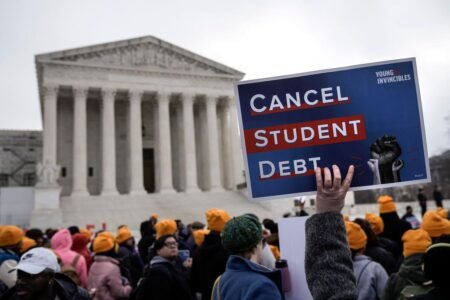In a groundbreaking decision, the Supreme Court has expanded federal courts’ authority to limit the powers of federal agencies, potentially impacting the Treasury and IRS’s ability to clarify gray areas in the tax code through regulations. The ruling in Loper Bright Enterprises v. Raimondo overturns the long-standing Chevron doctrine, which allowed judges to defer to agency interpretations of ambiguous statutes. The decision reflects the court’s efforts to curb what conservatives call the “administrative state,” following recent rulings that restricted the EPA and SEC’s authority.
The majority opinion in Loper Bright declared the Chevron doctrine as “fundamentally misguided” and “unworkable,” leading to its reversal and a declaration that courts cannot defer to agency interpretations simply because a statute is ambiguous. Justices Clarence Thomas and Neil Gorsuch went further by declaring Chevron unconstitutional, placing a “tombstone” on the doctrine. The dissenting justices criticized the decision as “judicial hubris,” arguing that judges lack the expertise to address complex issues and should defer to agency interpretations when the law is unclear.
The impact of the Chevron ruling on tax law could be significant as Congress often leaves it to the Treasury and IRS to fill in statutory gaps due to the complexity of taxes. Without Chevron’s judicial guardrails, regulators may have less flexibility to address evolving circumstances, such as the taxation of cryptocurrency. The decision raises questions about how much discretionary authority agencies will have when filling in statutory blanks and whether Congress will confirm such authority in the current hyperpartisan environment.
With the repeal of Chevron, the IRS may face more pushback from courts, potentially requiring them to seek public comments more frequently to bolster the reasonableness of their regulations. While Treasury and IRS may still have the authority to write regulations, particularly for new laws, without constant judicial intervention, their flexibility to adapt to changing circumstances could be limited. The decision adds to the court’s recent trend of weakening executive branch power, creating uncertainty for taxpayers seeking legal clarity.
Overall, the Chevron ruling represents a significant shift in the balance of power between federal agencies and the judicial system. It underscores the court’s efforts to limit the authority of administrative agencies and strengthen oversight of regulations. The decision could have far-reaching implications for tax law and administrative procedures, potentially complicating the regulatory landscape and creating challenges for agencies seeking to adapt to evolving circumstances. As Congress grapples with legislative gaps and complexities in tax law, the implications of the Chevron ruling remain uncertain.











